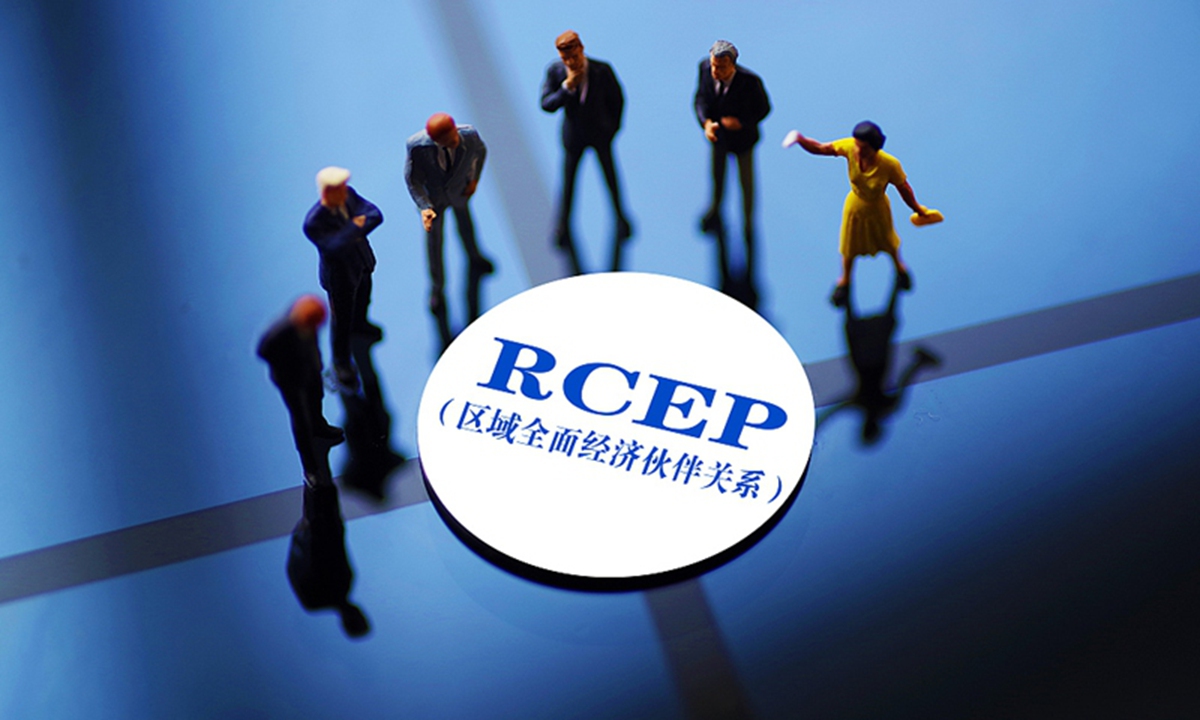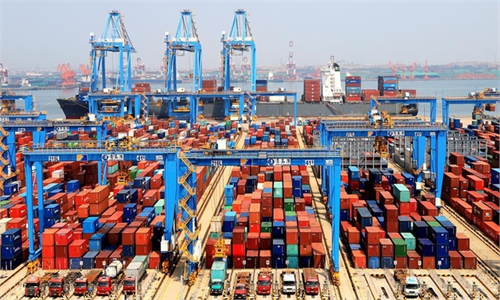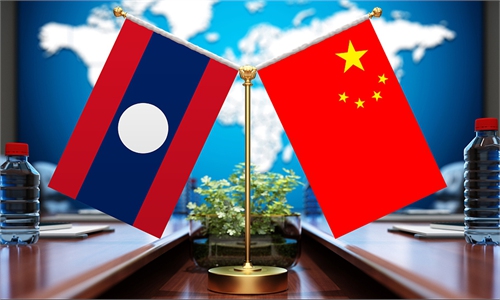
RCEP Photo: Xinhua
The Regional Comprehensive Economic Partnership (RCEP) agreement boosted Chinese exports to Japan in the first four months of the year, a major Chinese trade group said on Monday, underscoring the massive benefits of the trade pact for regional and global industries.Japan was the top export destination for the issuance of RCEP certificates of origin by value for four consecutive months since the beginning of year, accounting for 90 percent of the monthly value, according to the China Council for the Promotion of International Trade (CCPIT).
"The RCEP certificates of origin have been widely applauded among Chinese exporters to Japan. The momentum shows that the RCEP has started to deliver benefits for enterprises doing business with Japan and its great potential to boost China's exports to Japan," Yu Yi, CCPIT spokesperson, said in a news conference on Monday.
China's exports to Japan rose 3.7 percent year-on-year in the first four months, according to the General Administration of Customs.
The RCEP certificate of origin allows China's foreign trade enterprises to enjoy preferential policies and tariff reductions for exports to Japan for the first time, while helping them expand exports to ASEAN and lay an important foundation for building more open and inclusive regional economic and trade structures, Yu said.
From January to April, the CCPIT issued 30,000 RCEP certificates of origin to more than 7,500 enterprises, which are expected to reduce tariff payments by $23 million.
Garments, accessories, organic chemicals, plastics, aluminum and other products were the major export commodities.
Entering into force on January 1, the landmark RCEP is the world's largest free trade deal to date. RCEP economies account for roughly 30 percent of the world's GDP and population. Over 90 percent of trade in goods among approved member states will gradually become tariff-free.
Global Times



